How and in what is gas flow measured: measurement methods + overview of all types of gas flow meters
A flowmeter is a device for measuring the volumetric or mass flow rate of a substance, including natural gas, combustible, aggressive gases, air separation products. Calculation of flow volumes at industrial enterprises or at home can be performed without the involvement of specialists.
Next, we will describe how and in what gas is measured, give a description of the devices that are used for this purpose, and also consider the main methods for determining gas flow.
The content of the article:
Direct method of measuring gas consumption
The volume of gas is calculated in cubic meters, less commonly used are other units of mass, such as tons or kilograms, usually for process gases.
The direct method is the only method that provides direct measurement of the volume of gas passing through.
The weaknesses of devices that calculate the volumetric or mass flow rate of a substance include:
- The limited operability of flow meters in a polluted gas environment.
- There is a high probability of failure due to partial blockage of the flow or pneumatic shock.
- High cost of rotary counters in comparison with other devices.
- Large dimensions of devices.
Numerous advantages of this method overlap the listed disadvantages, due to which it also gained the greatest distribution in the number of installed counters.
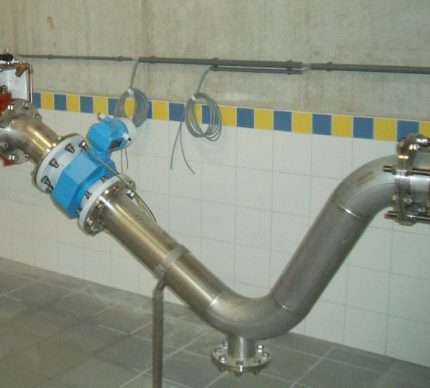
Among them - a direct measurement of the gas volume, the absence of dependence on the distortion of the flow rate graph, both at the inlet and at the outlet, which reducesUGG. The width of the range is up to 1: 100. For this purpose, membrane and rotary devices are used. They can be used in rooms with installed pulsed-type boilers.
Indirect measurement methods
These methods include calculating, for example, the flow rate of a substance through a given cross-sectional area. To obtain the most accurate results, it is necessary to equalize the gas velocity.
Differential pressure gas flow measurement
One of the most common and studied methods of gas flow, based on the use of a constriction device, has several advantages, including the simplicity of the flow transducer mechanism, the action of which is aimed at measuring the pressure drop of a substance flowing through a local constriction in a gas pipeline. No calculations required flow meters stands.
Despite the availability of a complete scientific and technical base, this measurement method has several significant drawbacks - a small measurement range, which even taking into account multi-limit pressure sensors, does not exceed the value 1:10.
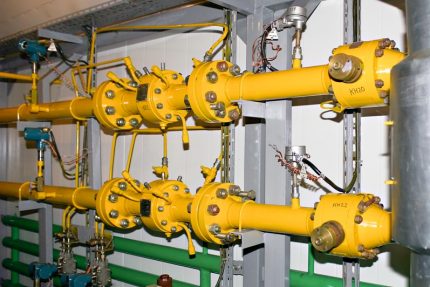
Hydraulic resistance in gas pipelines increase sensitivity to schedule changes inmedium speeds in depth or width of the stream at the entrance to the diaphragm. The length of the straight sections in front of the narrowing devices should be at least 10 diameters of the pipe structure.
Speedy costing method
Turbine converters are used for this method. These devices have several advantages, including small dimensions and weight, an affordable price in their category.
These devices are not sensitive to pneumatic shock. The range of flow measurement values is up to 1:30, which significantly exceeds the same indicator for narrowing devices.
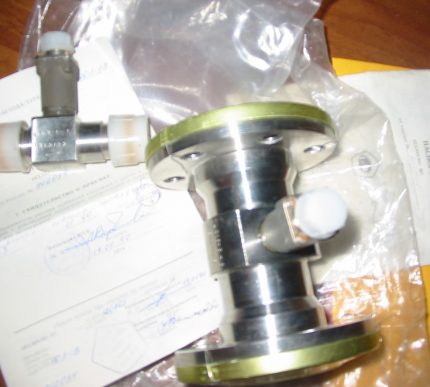
The disadvantages include sensitivity, albeit insignificant, to flow distortions at the inlet and outlet of the device, and deviation of the measurement results of pulsating gas flows. At low costs, in the range of 8 to 10 m3/ h, flowmeters are inoperative.
Ultrasonic measurement method
The popularity of acoustic flowmeters that measure the amount of gas, especially in commercial accounting, has grown with the development of microelectronics. In acoustic flowmeters there are no moving parts, as well as parts protruding into the stream, which significantly increases their reliability.
The measurement is carried out in a wide range of values due to the ability of the device to work for a long time from the built-in power source. Domestic devices do not meet all the necessary requirements, since in order to avoid the influence of gas flow distortions on the calculation results, it is necessary to use exclusively multi-beam ultrasonic flow meters.
Classification of flow meters according to the principle of action
Flow meters differ in several ways, including pressure, type of gas used, and temperature conditions. Choose a device depending on the conditions of use, as well as the tasks.
Measuring instruments consist of parts such as a transducer responsible for the pressure drop, the connecting element and the pressure gauge.
Type # 1 - Inkjet auto-generating flow meters
A flowmeter of this type, also designed to measure the flow of natural gas, has several distinctive characteristics. The device is covered by negative feedbacks, the frequency of the jet connections depends on the gas flow.
Counters issued on the basis of jet flow meters are used for commercial accounting without preliminary examination.
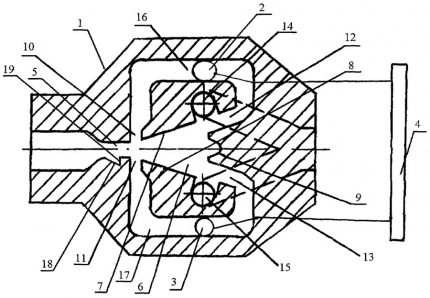
Jet flow meter auto generator type is subject to clogging, among its disadvantages is also the instability of the conversion indicator.
These devices have similar disadvantages with vortex devices:
- Dependence on the distortion of the velocity graph, provided that it is used in conjunction with narrowing instruments;
- massive pressure losses are irreversible;
- the main part of the flowmeter has huge dimensions;
- significant instability of the conversion rate.
Advantagesauto generator the flowmeter does not differ from the vortex device, with the exception of the ability to work with contaminated gases. These flowmeters have not found wide practical application in commercial accounting.
Type # 2 - Vortex Flow Meters
There are several strengths of the devices, including the accuracy of the measurements, the lack of sensitivity to contamination and pneumatic shock, ease of operation, the device also lacks moving parts.
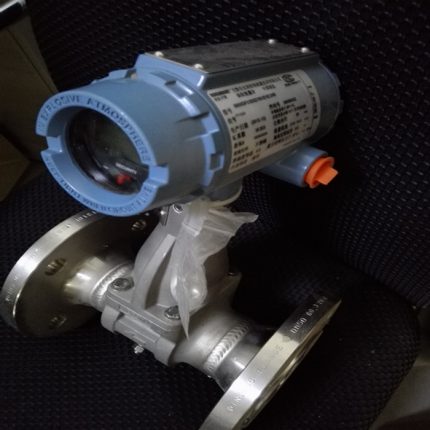
Significant disadvantages of using this type of flow meters are also known - increased sensitivity to mechanical vibrations, pressure drawdown. Pipe diameter should be in the range of 15-30 cm.
Type # 3 - Ultrasonic Flow Meters
The device, also known as acoustic, has several undeniable advantages:
- lack of hydraulic resistance;
- the device has no moving parts, which enhances its reliability;
- increased strength of the mechanism;
- quick action.
A flowmeter of this type is based on determining the difference in the travel time of the signal.
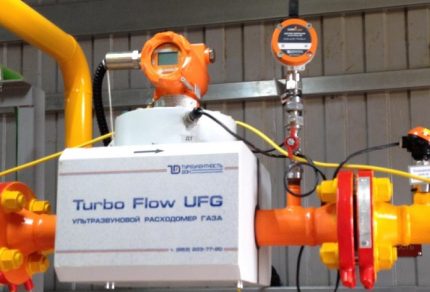
Ultrasonic sensors, located diagonally relative to each other, serve as a receiver and emitter. The use of several channels compensates for the deformation of the flow profile.
Type # 4 - Drum Flowmeters
This category of devices is used, as a rule, for laboratory research. The pressure that occurs during rotation of the drum, leads to filling the section with gas and their subsequent emptying.
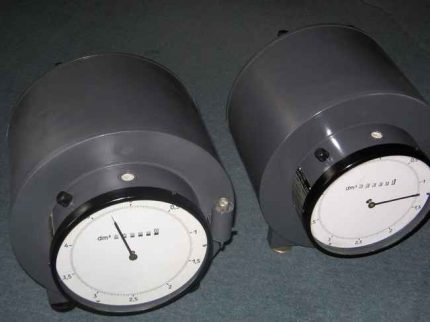
The number of revolutions of the drum is proportional to cubic units of gas, the indicator is transmitted to the dial of the counting design. Drum flow meters have high measurement accuracy.
Type # 5 - levitation devices
The moving part of the tachometer device rotates in the bearings, the speed is equal to the volumetric gas flow. The conversion of the speed of circular motion into an electrical signal is carried out using a secondary converter, the results are reflected on the indicator.
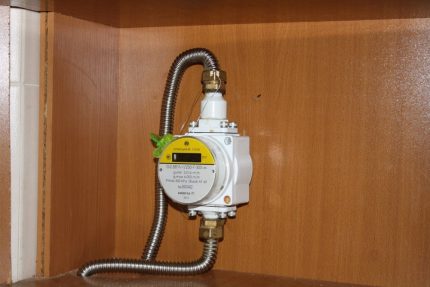
Levitation devices are in demand in the commercial metering of natural gas consumption, both for domestic and communal purposes.
Type # 6 - Membrane Counters
A patent for the manufacture of one of the most common metering devices for gas measurement was granted in the second half of the nineteenth century in England.
The principle of operation of a mechanical flowmeter is based on a change in the position of the movable chamber membranes at the time of gas entry. Alternate movement is carried out during the inlet and outlet of the substance.
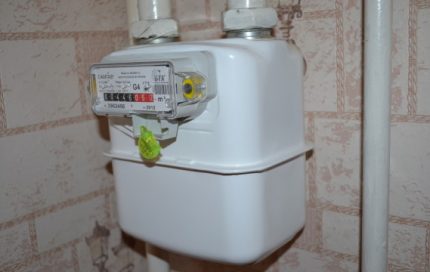
The calculating device drives the gear system and levers. The mechanisms have a wide range of values for measurements - up to 1: 100.
Type # 7 - Rotary Appliances
In the mechanical type device, two rotors are located in the measuring chamber, which begin to move under the pressure of the substance. Rotating parts are located at right angles to each other, their initial location is fixed using synchronizer wheels.
The amount of gas is proportional to the number of revolutions of the rotors. With the help of a magnetic coupling and a gearbox, the rotor rotation is transmitted to a counting device responsible for the accumulation of the volume of the passed substance.
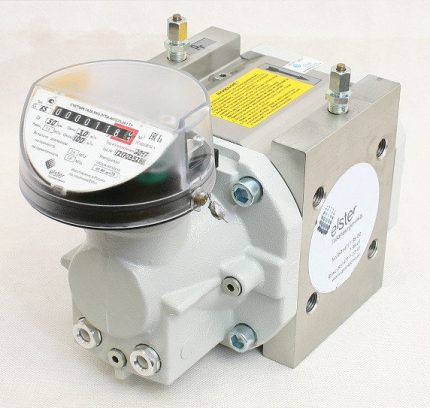
The main advantages of rotary flowmeters include high measurement accuracy, compactness of the device, a wide range of flow measurements. Among the disadvantages are the noise of the mechanism, its high cost, sensitivity to external factors, including pollution.
Type # 8 - Turbine Flow Meters
The mechanical type device has the form of a pipe segment, a turbine with a shaft and moving supports is placed inside the flowmeter. The power device moves due to the substance passing through the measuring chamber.
The speed of the mechanism is equal to the flow rate and gas flow. The accumulated volume is reflected on the counting mechanism, the transfer to it is carried out mechanically using a gearbox, gear system.
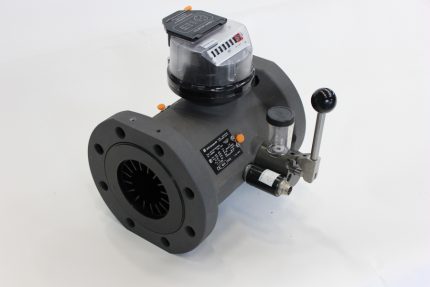
In addition to the above, there are other devices, but they are used, as a rule, in scientific research. In the commercial sphere, they are practically not involved.
We also recommend that you read our other article, where we talked in detail about how to choose a gas meter for the home. More details - go to the link.
Devices for measuring the amount of gas
Devices for measuring gas flow according to the calculation method are divided into several categories. High-speed ones are used to determine the volume number of the medium under study. These devices do not have measuring chambers. The sensitive part is impeller (tangential or axial), which causes the flow of matter to rotate.
Volumetric meters are less dependent on the type of product. Their disadvantages include the complexity of the design, the high price and impressive dimensions. The device consists of several measuring chambers, has a more complex design. This type of devices is divided into several types - piston, blade, gear.
Another classification of gas quantity meters is known, which includes three types of devices: rotary, drum, and valve.
Rotary meters have high throughput.Their action is based on the calculation of the number of revolutions of the blades inside the device, the indicator corresponds to the volume of gas. Their main advantages include longevity, independence from electricity, and increased resistance to short-term overloads.
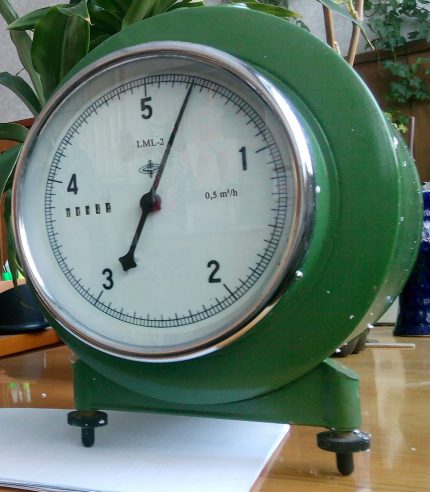
Drum counters consist of a housing, a counting mechanism and a drum with measuring chambers. The principle of operation of the device for measuring gas consumption is to determine the number of revolutions of the drum, which rotates due to the pressure difference. Despite the accuracy of calculations, this type of device has not found wide application because of its bulky size.
The principle of operation of the latter type of meters, known as valve meters, is based on the movement of the movable partition, which is affected by the pressure difference of the substance. The device consists of several parts - a counting and gas distribution mechanism, as well as a housing. It has large dimensions, therefore it is mainly used in everyday life.
Conclusions and useful video on the topic
How vortex gas flow meters work will be discussed in the following video:
Gas flow measurement is one of the key tasks in production. A huge number of devices with various designs and operating principles are available on the flowmeter market, which are also suitable for domestic needs. With their help, you can determine almost any amount of liquid or gas, without the need for a special calibration model installation.
You can supplement our material with interesting information on the topic of the article, ask questions of interest or participate in the discussion. Leave your comments in the box below.

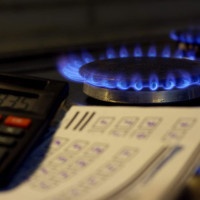 How to determine gas flow: methods for measuring and calculating the fuel used
How to determine gas flow: methods for measuring and calculating the fuel used 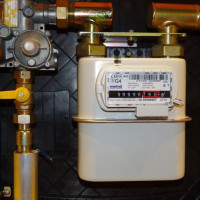 Standards for the distance from the gas meter to other devices: features of the arrangement of gas flow meters
Standards for the distance from the gas meter to other devices: features of the arrangement of gas flow meters 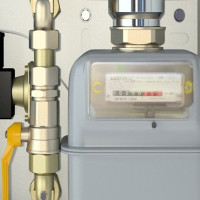 Gas consumption from the gas tank for heating: how to calculate + tips to minimize
Gas consumption from the gas tank for heating: how to calculate + tips to minimize 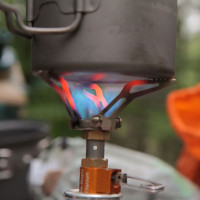 How long is the gas cylinder enough: gas flow calculation for typical gas cylinders
How long is the gas cylinder enough: gas flow calculation for typical gas cylinders 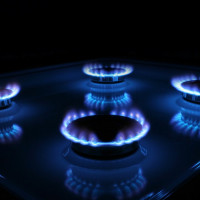 How much gas a gas stove consumes: gas flow calculation procedure
How much gas a gas stove consumes: gas flow calculation procedure 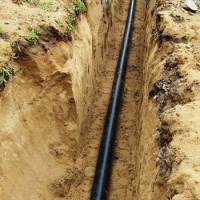 Gas pipe service life: gas utilization standards
Gas pipe service life: gas utilization standards 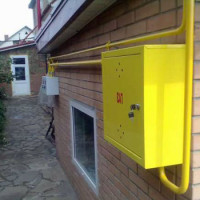 How much does it cost to connect gas to a private house: the price of organizing gas supply
How much does it cost to connect gas to a private house: the price of organizing gas supply  The best washing machines with dryer: model rating and customer tips
The best washing machines with dryer: model rating and customer tips  What is the color temperature of light and the nuances of choosing the temperature of the lamps to suit your needs
What is the color temperature of light and the nuances of choosing the temperature of the lamps to suit your needs 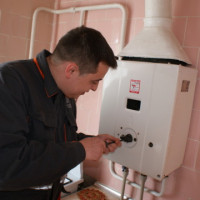 Replacement of a geyser in an apartment: replacement paperwork + basic norms and requirements
Replacement of a geyser in an apartment: replacement paperwork + basic norms and requirements